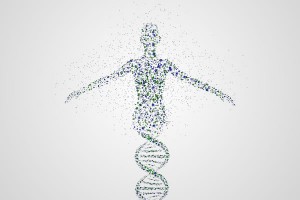Gene Mapping
THE FAT GENE: Gene mapping for weight loss is a science. DNA fit for healthy weight loss uses data in our fat cells. These play a role in how food gets used. Since 2007, researchers have known that a gene called FTO was related to obesity. What they didn’t know, was how the fat gene was linked to obesity.. Do you have the fat gene? Keep reading…
So, researchers couldn’t tie the FTO gene or fat gene to appetite or other known factors. Now experiments reveal that a faulty version of the gene causes energy from food to be stored as fat rather than burned.
Why Does This Matter?
Imagine you have access to why your healthy weight loss goals are hindered. Sound too good? KEEP READING….
We’ve a far greater chance of success following our personalised care pathway. With a healthy weight loss goal we help you reach your target.
The faulty gene doesn’t explain all obesity. It was found in 44% of Europeans but only 5%of blacks. So, other genes are clearly at work. Food and exercise still matter.
Read a break down of genetics factors affecting weight loss here in this sample DNA Diet report.
Keep reading to see how your result at Susannah Makram Clinics is shown on your DNA Weight Loss Test Report. READ as No Impact, Low Impact, Medium Impact, High Impact.
What’s the Real Story?
Possessing this ‘glitch’ doesn’t determine whether we are obese but may predispose us to obesity. Those of us with two faulty copies of the gene (one from our mother and one from our father) weighed an average of 7lbs more than those without them.
Genetic Testing For Weight Loss – Weight Loss DNA Test
Genetic testing is said to predict our chances of getting sick with critical illness. Weight Loss DNA Test reports are for healthy weight loss. Functional testing provides an algorithm that regular blood work does not. It’s hard to know how effective these tests are when we haven’t seen many long-term studies on DNA testing by laboratories up and down the country.
This is why, when it comes to offering you a personalised care service, sometimes conventional medicine alone just doesn’t work.
- The Weight Loss DNA Test for healthy weight loss. What is this? We elect to use gene mapping at Susannah Makram Clinics that has been designed to assist health practitioners in effectively managing our body weight. The results provide guidelines we can use in your Naturopathic Portfolio for Weight Loss. Diets, in general, do not always target specific body fat or belly fat loss. There are health reasons to avoid body fat accumulation in these areas. Your test results help us identify what we need to do to burn fat in these areas.
- The Weight Loss DNA Test is based on genetic differences in nutrient metabolism and body fat regulation.
- Genes involved in regulation of energy expenditure, appetite, and fat metabolism, all play an important role in weight regulation.
- 40% to 80% of the variance in body weight is due to genetic factors. This helps to explain why not everyone becomes obese even though people may be exposed to similar environments.
Weight Loss DNA Test
- From your buccal swab sample taken in for laboratory testing at the clinical consultation rooms we collect DNA accurately. This sample is used in a process, called the Polymerase Chain Reaction (PCR). This copies the DNA of your genes many times over so that we can generate sufficient quantities to analyse your genetic material. You can see this in action when you subscribe to Susannah Makram TV
- Four diet and lifestyle variables are analysed for the role they play in your weight management. These are your:
i) Obesity Risk
Research has clearly shown that individuals respond differently to carbohydrate in the diet. For some, reducing carbohydrate intake improves weight loss and prevents weight gain.
ii) Saturated Fat
Individually, we differ in our response to the quantity and quality of fat in our diet. Our genes may influence how we absorb fat. Not just that. Also our ability to burn up fat.
iii) Carbohydrate
Research has clearly shown that individuals respond differently to carbohydrate in the diet. For some, reducing carbohydrate intake improves weight loss and prevents weight gain.
iv) Exercise
Exercise is an important part of weight loss. However, some individuals require higher exercise intensities. Some of us need greater time spent exercising to mobilise their fat stores.
- Weight Management Genetic Testing has been all over the news in the US – The Today Show, The Wall Street Journal, CBS Morning News – In America they are calling it personalised medicine.
- All genes tested meet the following stringent criteria for utility in genetic screening tests, including that they:
- Have proven biological function. Many of the genetic variations in the test panel produce a change in the amino acid structure of the protein and change theactivity of the protein. Other variations in the panel affect transcription factors in DNA-based communications.
- Have a plausible biological role in weight management. For example, some of the gene variations produce a change in the amount of fat absorbed from a meal or alter carbohydrate metabolism.
- Have evidence from clinical studies, that individuals with different genotypes have a differential response to either certain diets or different levels of physical activity.
Nutrigenomics – Weight Loss DNA Test
- Genotype Results show a break down of every genetic variation tested for with the impact of this gene on you as an individual. The gene is measure with regards to how it affect your weight loss by nutrient metabolism and body fat regulation. Your result for each variable tested is shown on your DNA Weight Loss Test Report as No Impact, Low Impact, Medium Impact, High Impact. On your report the genes identified and their role is explained. As shown in 9. and 10. below the areas of genetic activity are broken down into Absorption and metabolism
Fat metabolism, obesity and satiety
Regulation of metabolism and feeding behaviour
Insulin sensitivity and regulation of energy intake
Exercise responsiveness
Circadian Rhythms
Fat Storage
Inflammation
Taste Sensitivity
Addictions and Overeating - An example of one of the genes test is CLOCK – Circadian Locomotor Output Cycles Kaput (CLOCK), an essential element of the human biological clock, is involved in metabolic regulation. Carriers of the C allele are less successful losing weight than the TT genotype. In addition, those with the C allele have reduced sleep, report morning fatigue and show an evening preference for activities. They also have higher ghrelin levels which regulates appetite, potentially altering eating behaviour and weight loss.
- ADRB2 Arg16Gly This ADRB2 receptor protein is involved in the mobilisation of fat from fat cells for energy in response to catecholamines, and modulates lipolysis during exercise. The G allele has been associated with obesity, and G allele carriers are more likely to gain and regain weight and lose weight more slowly. These carriers are less able to mobilise fat stores in response to exercise. In these individuals it is important to emphasise diet for weight management as exercise may be less effective.


